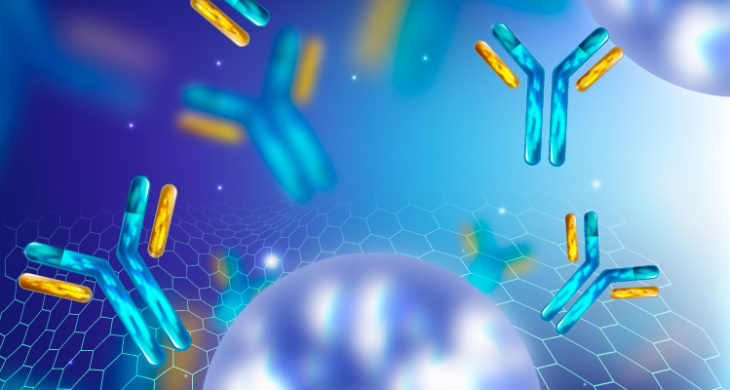
Date: 6th May 2021
As the worldwide population ages, a significant challenge will be for healthcare systems to meet the clinical needs of this demographic change and coping with the rapid increase in demand. Developing strategies for the associated increase in the incidence of chronic and age-related diseases will be essential, and advancing point-of-care diagnostic and prognostic tools will also be a critic element in the near future. Now, researchers have developed a novel biosensor called the EV-Chip, an electronic graphene field‐effect transistor (gFET) , that rapidly identifies and quantifies exosomes (EV) associated with aging, from liquid biopsies.
Exosomes are membrane-bound extracellular vesicles that are produced in the endosomal compartment of most eukaryotic cells, and play a major role in cell-to-cell communication. They are considered to be good biomarkers for cancer diagnostics, prognosis, and therapeutic responses and are also suitable indicators of other ageing diseases. However, conventional techniques for sensing exosomes are not compatible at point-of-care, meaning specialised equipment is required and time-to-results can be lengthy.
Now, Kiana Aran and colleagues at Cardea Bio, the Keck Graduate Institute, the Keck Science Department, and the University of California, US, have developed a portable, low-cost prototype reader based on previous gFET technology, dubbed EV-Chip, that can detect and quantify exosome biomarkers from liquid biopsies using specific surface markers, CD63 and CD151.
The EV-Chip uses highly-specific antibodies embedded into a Cardean Transistor chip, which exploits the highly sensitive and conductive nature of one-molecule-thick graphene. Upon recognition of the plasma-derived exosome biomarker target, the transistor detects antibody binding events which alter the properties of the graphene and turn it into a digital signal which can be read by a small portable device.
In the paper, published in Advance Biology, the team demonstrated the EV-Chip’s capabilities to analyse two exosomal surface markers, CD63 and CD151. CD63 can be used for predicting the prognosis in earlier stages of carcinomas, and is a biomarker for cancer and viral infections. CD151 is a potential prognostic cancer biomarker and is associated with cancer progression, neoangiogenesis and metastasis.
The EV-Chip quantitatively detected purified exosomes from plasma, with a limit of detection (LOD) of 2 × 104 particles mL−1 and a limit of quantification (LOQ) of 6 × 104 particles mL−1. It was particularly sensitive at quantifying CD63, at 4-5 orders of magnitude greater than traditional commercially available technology, and it also detected age-related changes in CD151 as reliably as standard methods.
Perspectives
The team here have successfully demonstrated the use of EV-Chip for the detection and quantification of exosome biomarkers of cancer and other aging-related diseases. However, this is just the start for this technology, due to its flexible nature it can be functionalised to detect virtually any exosome biomarker. With this new technology comes the potential to radically accelerate the discovery and use of new exosomes biomarkers and offers us the tools to open the avenue on this untapped diagnostic resource – the exosome.
The EV-Chip is just the latest development based on the original groundbreaking device the CRISPR-Chip which first came to our attention in March, 2019. The CRISPR-Chip detects large nucleic acid insertion and deletions, and was deemed as the first ‘search engine’ for DNA. Just last month the SNP-Chip was announced - the latest version of the CRISPR-Chip but with an added layer of sensitivity able to detect single nucleotide polymorphisms. Now the EV-Chip, the latest evolution of the technology, exploits antibody binding rather than CRISPR, and is once again set to transform diagnostics – harnessing and bridging biological and digital networks.
For more information please see the press release at Business Wire from Cardea Bio
Hajian, R., DeCastro, J., Parkinson, J., Kane, A., Camelo, A.F.R., Chou, P.P., Yang, J., Wong, N., Hernandez, E.D.O., Goldsmith, B., et al. Rapid and Electronic Identification and Quantification of Age-Specific Circulating Exosomes via Biologically Activated Graphene Transistors. Advanced Biology, 2000594.
https://doi.org/10.1002/adbi.202000594